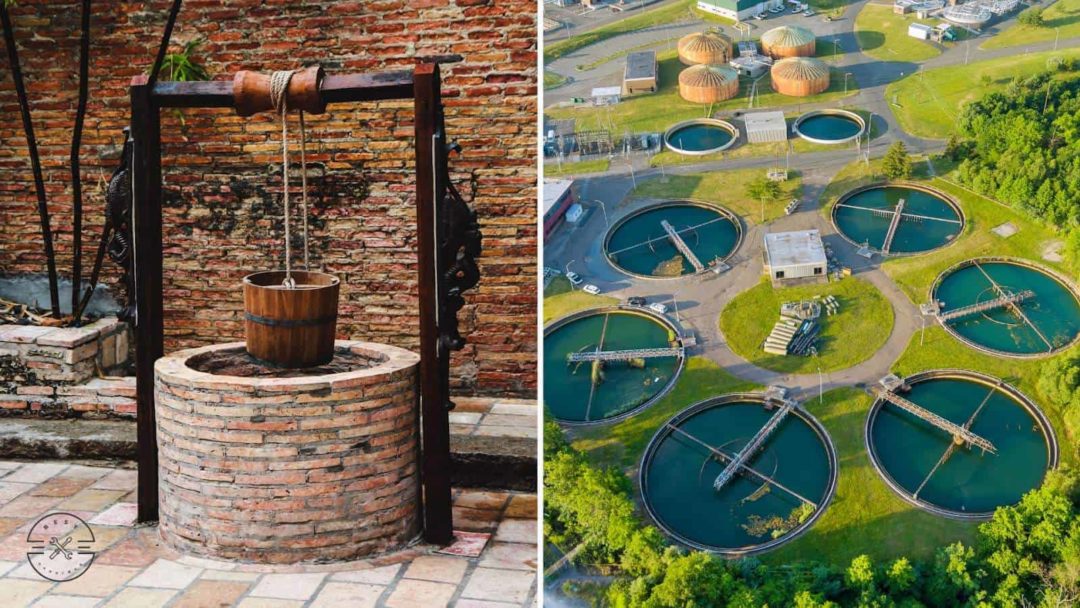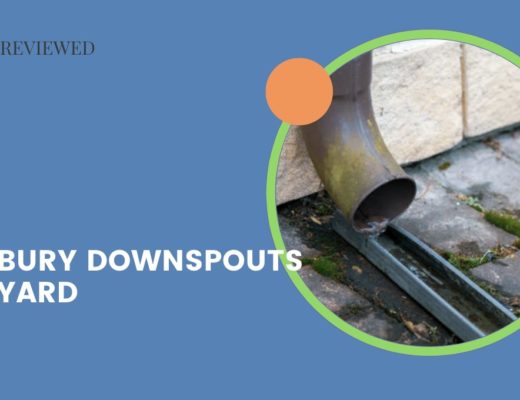Have you ever wondered about the water that comes out of your tap?
It’s something we often take for granted, but the source of your drinking water can have a big impact on taste, cost, and even your health.
Let’s compare the pros and cons of well water vs. city water to help you decide which source is best for your needs.
What is well water?
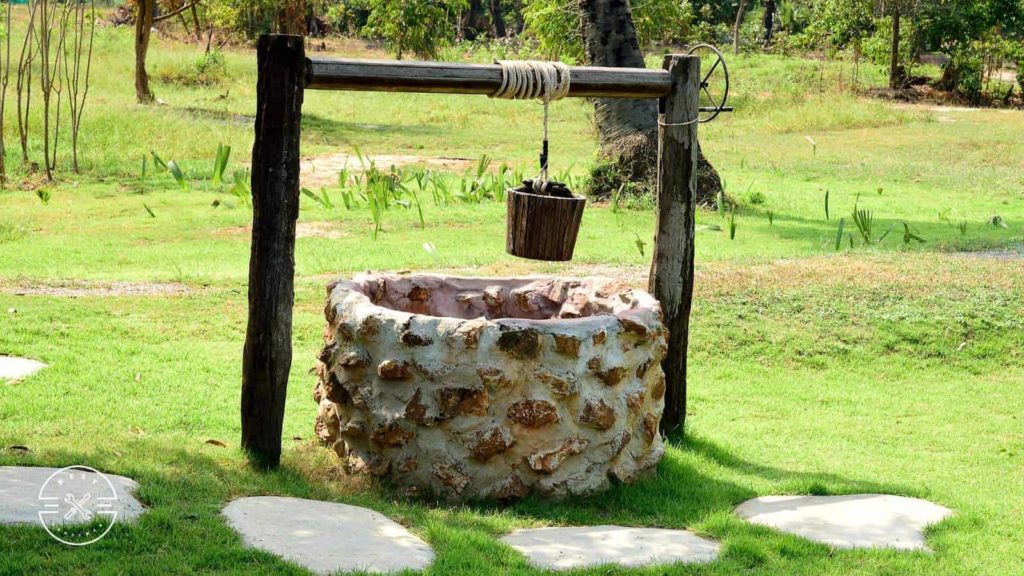
Well water comes from a deep hole in the ground. It’s considered a more natural way of obtaining water since it’s not treated with chemicals and comes from an underground aquifer.
Well Water Pros:
- The absence of additives like chlorine or fluoride makes it healthier than city water.
- Since you won’t be paying a monthly bill, it will usually be less expensive in the long term.
Well Water Cons:
- Prone to contamination by substances like bacteria, minerals, and pesticides.
- Has higher mineral content, leading to hard water and clogged pipes.
Factors Affecting Well Water Quality:
- The depth and location of the well
- The type of soil and rock surrounding the well
- The presence of nearby sources of contamination (like septic systems or agricultural fields)
- The age and condition of the well components
What is city water?
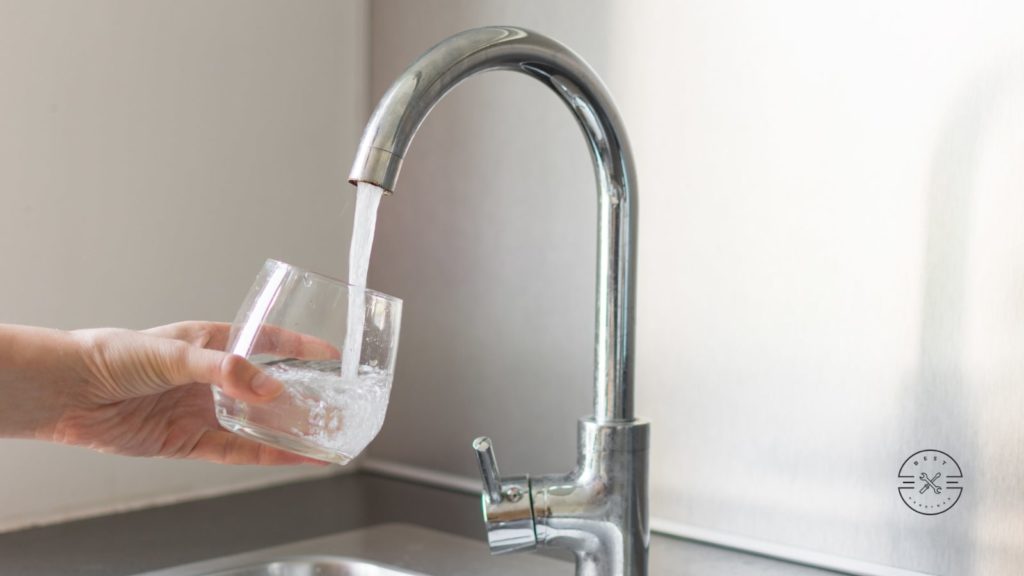
City water, usually called municipal water, is cleaned and treated water obtained from surface water sources such as rivers, lakes, or reservoirs.
City Water Pros:
- The water treatment process ensures that your water supply stays impurities-free.
- It’s easily accessible and requires little to no maintenance on the homeowner’s part.
- Contains healthy chemicals like fluoride
City Water Cons:
- Tastes bitter and unpleasant because of chemicals like chlorine
- Can be expensive over time, as you must pay a monthly bill
- Contributes to the environmental impact of water treatment plants
Factors Affecting City Water Quality
- The origin of the water supply (e.g. river or lake)
- How the water is heated at the treatment plant before it reaches your home
- The condition of the pipes that bring the water from the treatment plant to your faucet
Which is Better: Well Water or City Water?
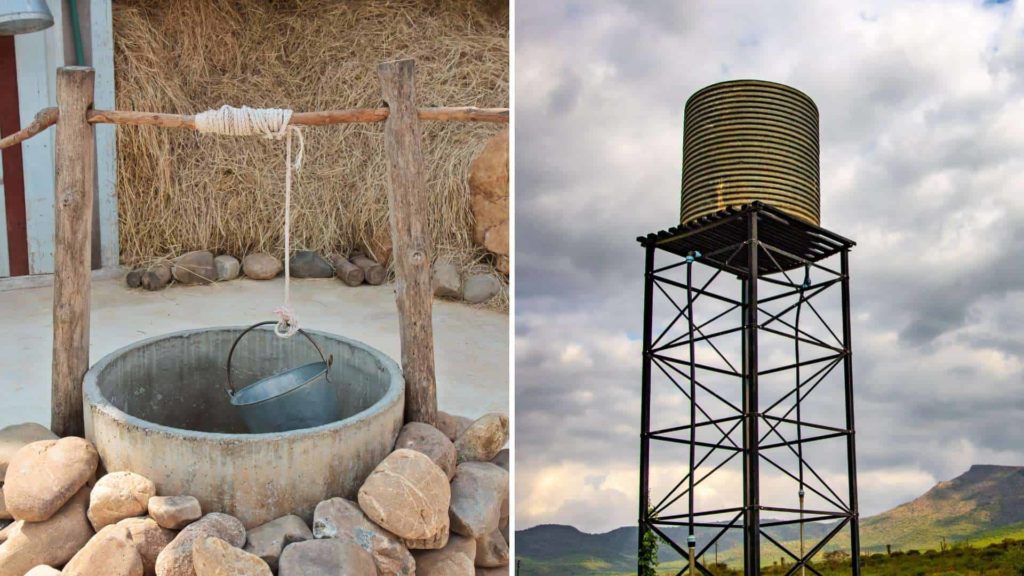
Choosing between well water and city water depends on your current situation.
Well water may be your only option if you live in a rural area. However, city water may be more readily available if you live in a city or suburb.
Talking about cost, well water may be a more affordable option in the long run if you are on a tight budget. However, if you’re willing to pay a little more for treated city water, the added health benefits may be worth it.
When it comes to taste, well water may be a better option if you’re sensitive to the taste of chemicals such as chlorine.
If you’re willing to invest in regular testing and maintenance of your well water system, then well water could be a safe and healthy option.
If you’re concerned about the environmental impact of water treatment plants, well water can be a better option. If you’re willing to support water treatment plants that work to reduce their ecological impact, city water may be a better option.

